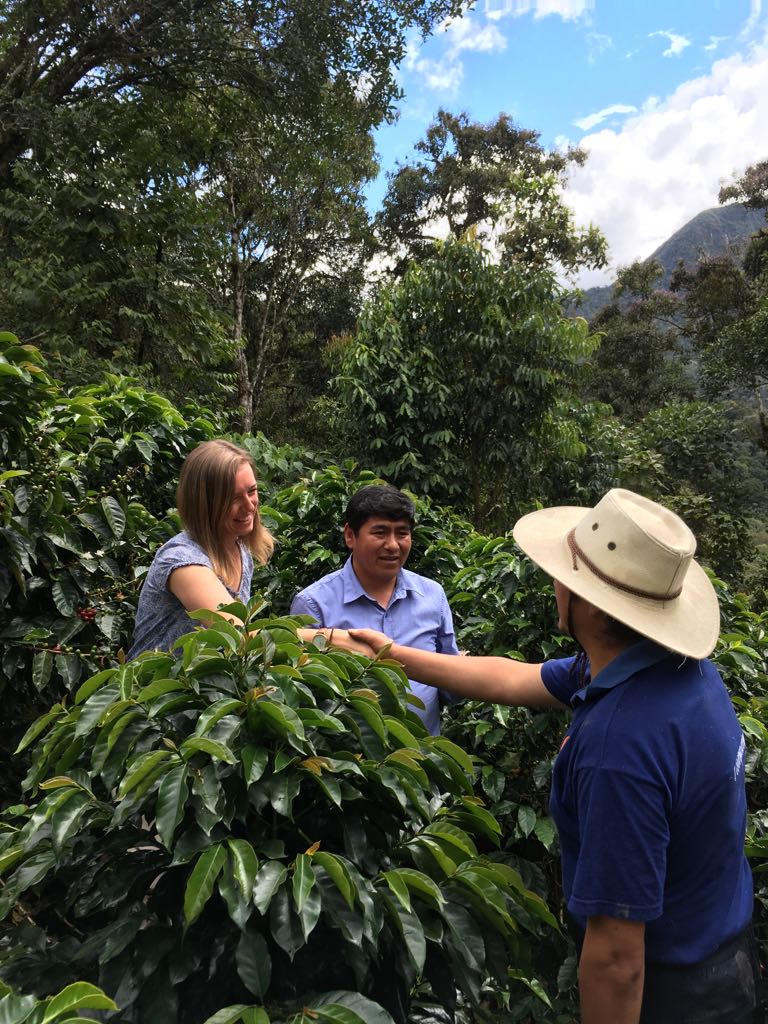Despite record highs in global coffee prices, small-scale Fairtrade farmers are facing worsening hardship, according to leading UK coffee supplier Matthew Algie.
Arabica coffee prices have surged dramatically in the past year, peaking at 425 cents per pound—more than double the rate seen in 2023. But instead of bringing prosperity to coffee-growing communities, the price boom is coinciding with what experts at Matthew Algie describe as a ‘perfect storm’ of climate disruption, spiralling costs, and financial uncertainty that is undermining the long-term sustainability of coffee farming.
The UK and Ireland supplier, a longstanding advocate for ethical and Fairtrade sourcing, warns that extreme weather events, including prolonged droughts in Brazil and Vietnam—the world’s two largest coffee producers—are slashing yields. Simultaneously, geopolitical instability, rising shipping costs, and speculative trading are further destabilising the market.
Estelle MacGilp, Head of Coffee Sourcing at Matthew Algie, believes the coffee industry must refocus on long-term sustainability, rather than being distracted by short-term price spikes.
She said: “The coffee industry is facing a perfect storm of pressures, driving prices to near-unprecedented levels. But for many farmers, these prices don’t translate into sustainable livelihoods. Volatility is the real issue – prices can rise quickly, but they can also fall just as fast. That instability makes it difficult for producers to plan ahead or secure the credit they need to produce the next crop.”
Many smallholder cooperatives depend on credit to operate, but as prices rise, so do borrowing needs, placing an even greater strain on financial access. Exporters, too, are facing the challenge of financing contracts at significantly inflated rates. These additional pressures, warns MacGilp, threaten the ability of producers to plan, reinvest, or grow their operations sustainably.
Amaro Cruz, of the Frontera San Ignacio Cooperative in Peru, said small-scale producers are feeling the pinch, with market uncertainty making long-term planning more difficult.
He said: “While high prices may temporarily increase income, cooperatives face rising financial costs and greater competition from local traders who offer high prices without requiring high quality. That can reduce supply to Fairtrade markets and make it harder to operate sustainably.
“Higher income can help us improve our farms, but the volatility means it’s hard to commit to those investments.”
Fairtrade certification offers some protection through a minimum price guarantee and a premium for investment in community and environmental initiatives. While the Fairtrade minimum of $1.80 per pound currently sits below market rates, its role as a buffer during downturns remains vital.
“Fairtrade ensures fair prices, but also protects producers’ rights and promotes social, economic and environmental well-being, “Cruz added.
With forecasts already pointing to potential frost risks in Brazil’s upcoming harvest season, global coffee stocks remain low, and the outlook is increasingly uncertain.
Amy Oroko, Sustainability Manager at Matthew Algie, said: “While we hope farmers see some benefit from higher prices this season, the broader volatility makes trading conditions extremely difficult for the cooperatives who serve smallholder producers. Sustainability in coffee is about more than pricing – it’s about resilience, relationships and shared responsibility.”
Matthew Algie, which introduced the UK’s first Fairtrade espresso in 1997 and the world’s first triple-certified espresso in 2004, continues to champion ethical sourcing practices. As the sector navigates one of its most volatile periods in decades, the company is calling for buyers, retailers and consumers to recommit to long-term sustainability over short-term profits.
For more on Matthew Algie’s commitment to Fairtrade, visit: matthewalgie.com/our-journey-with-fairtrade





